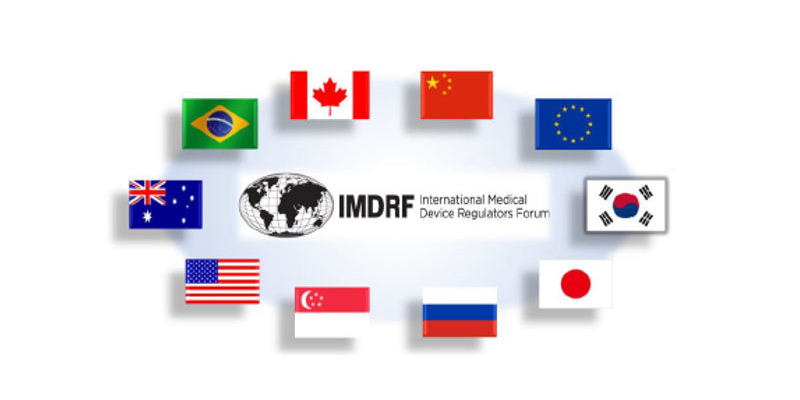South Korea regulation changes in 2018
The following regulatory changes are expected in 2018 in the South Korea regulation as published by the MFDS (Ministry of Food and Drug Safety):
Main regulatory changes in South Korea regulation
- Adopt customized licensing system for advanced medical devices
– ‘Special Act on Promotion of Advanced Medical Device Development and Technical Support’ Initiated (Dec. ’12) - Establishment of licensing system considering characteristics of medical devices
– Initiated the ‘In Vitro Diagnostic Medical Device Guideline’ and the ‘In Vitro Diagnostic Medical Device Act’ (December ’17) - Simplify the performance test data of medical devices for IVD
– Inquiry materials for in vitro diagnostic medical devices, data on ‘performance test’
‘Quality control test report’ → ‘Data on quality control test results’ to be improved (’17. July)
* Amendment of Article 33 of Medical Device Permit, Notification and Examination - Medical device distribution quality management standards suitable for online distribution
– For online sales entities of medical devices, it is not necessary to apply the regulations such as facilities, facilities, environmental hygiene management and document record management standard among ‘Medical device distribution quality control standard’. - Construction of safety management base of medical device using AI technology – Artificial intelligence. Establish guidelines for evaluation of clinical efficacy of medical devices for application and registration
- Establishment of licensing and examination system for medical devices operated with robotic technology – Guidelines for approval and review of medical devices with robotic technology
Changes in the KGMP within South Korea regulation
- Similarly as in Europe, unannounced audits will be taking place
- The requirements for the document review will be improved
- The number of registered 3rd party qualified for performing KGMP audits will be expanded
- The KGMP requirements will be updated to align with the standard ISO 13485:2016
- Alignment with MDSAP will be prepared in order to be aligned with global regulations
More updates in the South Korea regulation
- Prepare guideline for 3D printing devices
- In the era of the 4th Industrial Revolution, which is symbolized by the fusion technology, various types of high-tech products combined with new technologies are introduced in the field of medical products. → ‘AI, Big Data’, ‘Medical Robot’, ‘ establish a flexible regulatory system that meets the characteristics of various new medical devices in the 4th Industrial Revolution era such as’ IVD Medical Device ‘,’ 3D Printing ‘,’ Virtual / Augmented Reality (VR / AR)
- Main contents
- Adoption of designation of high-tech medical devices and quick examination system
- Promotion of advanced medical equipment development and technical support * Promotion of “Special Act on promotion of advanced medical device development and technical support”
- UDI : Class 4 (Jan 2019), Class 3 (Jan 2020), Class 2 (Jan 2021), Class 1 (Jan 2022)
- Establishment of integrated information system to collect and manage medical device unique identification code (’17)
- Mandatory indication of medical device standard code and registration of UDI information (’19 ~) – Class 4 (‘19.1.1), Class 3 (’20 .1.1), Class 2 (’21 .1.1), Class 1 (’22 .1.1)
- Mandatory reporting of medical device supply history (’19 ~)
- Extension of the Ban on using Phtalate (not only DEHP, DBP, BBP)
- Distinguish IVD from general medical device
- Establishment of separate management system and international harmonization considering the characteristics of in vitro diagnostic medical devices * Separate management of in vitro diagnostic medical devices from Europe, China, IMDRF and other medical devices separately
- Main contents
- In-vitro diagnostic medical device definition: In addition to in vitro diagnostic reagents, including measuring devices and systems
- Clinical performance test: Improvement of clinical performance test by IRB approval only
- Clinical Laboratory Certification: Clinical Laboratory Certification System (Legal basis)
- Substantial equivalence
- If substantial equivalence is recognized Second-generation products can be licensed (not certified) without clinical trial data (improved) Comprehensive review of the effects of foreign regulations such as the US and Europe and domestic industry conditions
- IVD clinical trial
- In Vitro Diagnostic Medical Device Clinical Trial Development through International Harmonization * Extension and Submission of Clinical Trial Exemption for In Vitro Diagnostic Medical Devices · Simplification of data submitted
- Designation as an international non-clinical testing institution (OECD GLP institute) Previously, five major medical device testing and inspection institutions were designated as GLP institutions in ’18.
- CLIS
- Expansion of application subject of clinical laboratory certification system * Addition of inspection technology such as micro-array, ddPCR, etc. in addition to NGS inspection
- Establishment of guideline guidelines for inspection standardization of NGS result analysis
- Monitoring of quality issues
- Strengthen target monitoring through data analysis centered on hazard factors
- Expand the ‘Corrective and Preventive Measures’ system applied to quality control violation companies (’17) Planned monitoring + Occasional monitoring (violation of quality control) ) Violation of compliance with manufacturing / importer
- Adverse events
- Reorganization of safety information management system such as adverse events of medical equipment – Operation of medical device information technology support center as an adverse event collection, analysis and evaluation tool
- Enhancement of pre- and post management by using medical device safety information – The results are reflected in technical documents and GMP audit work
All the above will be monitored throughout 2018 and we will provide updates when South Korea regulation undergoes changes.
Original information is published on MFDS website (in Korean).







